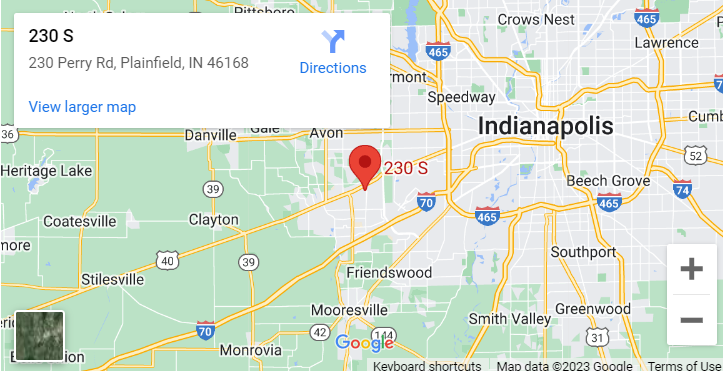Defining compliance services and its purpose
In business, compliance refers to following the law. Depending on the business and industry, there may be different laws that apply. There are also ethical considerations beyond legal requirements that businesses may choose to adopt. The purpose of compliance is to ensure that businesses operate within the bounds of what is legally and ethically acceptable.
Compliance can be a complex and costly endeavor, but it is essential to protecting a business from risk. By adhering to laws and regulations, businesses can avoid penalties and other negative consequences. Compliance also helps businesses build trust with employees, customers, shareholders, and other stakeholders. When stakeholders trust a business, they are more likely to support it through difficult times.
The benefits of regulatory compliance services
There are many benefits to using regulatory compliance services. Perhaps the most important benefit is that it can help your organization avoid penalties and fines. It can also help you avoid disruptions to your business operations. Additionally, compliance services can help you manage risk more effectively and improve your organization’s overall image.
Another benefit of using regulatory compliance services is that it can help you save money in the long run. By ensuring that your organization is compliant with all applicable laws and regulations, you can avoid costly mistakes that could lead to significant financial losses. Compliance services can also help you improve your internal processes, which can lead to more efficient and cost-effective operations.
Finally, complying with regulations can also help protect the health and safety of your employees, customers, and other stakeholders.

The different types of compliance services available
There are many compliance services available to help organizations meet regulatory requirements. Some common services include policy development, risk assessments, training and education, auditing and monitoring, and incident response.
Policy development involves creating policies and procedures that comply with regulations. Risk assessments identify potential risks and recommend mitigation strategies. Training and education help employees understand regulatory requirements and how to comply with them. Auditing and monitoring help ensure compliance with policies and procedures. Incident response plans are designed to address violations of regulations.
Organizations can choose from a variety of compliance services to meet their specific needs. By working with a compliance consultant, they can develop a customized plan that addresses all aspects of regulatory compliance.
How to choose the right provider for your needs
There are a number of regulatory compliance service providers in the market. Here are some tips to choose the right provider for your needs:
1. Define your requirements: The first step is to understand your specific compliance requirements. This will help you shortlist providers that offer services that match your needs.
2. Consider experience and expertise: It is important to consider the experience and expertise of the provider in dealing with similar clients and industries. This will ensure that they are able to effectively meet your compliance needs.
3. Request for proposals: Once you have shortlisted a few potential providers, request for proposals from each of them outlining their services and costs. This will help you compare and choose the right provider based on your budget and requirements.
4. Check references and reviews: To ensure that you are choosing the right provider, check their testimonials and recent client reviews. References from previous clients will help you understand what to expect from them.
5. Choose the right service model: When choosing a provider, consider the service model they offer.
The importance of staying compliant
It is important for businesses to stay compliant with regulations in order to avoid penalties and legal action. compliance ensures that a company is adhering to all relevant laws and regulations, which can protect it from financial and reputational damage.
There are a number of reasons why it is critical for businesses to stay up-to-date on regulatory changes and ensure compliance. First, failure to comply with regulations can lead to heavy fines or even the shutdown of a business. Second, non-compliance can damage a company’s reputation, leading to lost customers or clients. Finally, staying compliant demonstrates a commitment to ethical business practices, which can boost customer confidence and loyalty.
Fortunately, there are a number of ways businesses can stay compliant. First, they can develop internal policies and procedures that ensure all employees are aware of relevant regulations.
How we can help with your regulatory compliance needs
Businesses are under more pressure than ever to comply with a growing number of regulations. The cost of non-compliance can be high, so many companies are turning to regulatory compliance services providers like Sentree Systems to help them navigate the complex landscape of rules and regulations. Our compliance services can help businesses stay compliant with laws and regulations, avoid costly fines and penalties, and protect their reputation.
Conclusion
As businesses face increasing regulation, the need for compliance services has never been greater. By working with a regulatory compliance service, businesses can ensure that they are meeting all of the requirements set forth by government agencies. This can save businesses time and money, as well as avoid penalties for non-compliance.
In addition to saving time and money, compliance services can also help businesses avoid potential legal problems. By ensuring that all regulations are being followed, businesses can avoid costly litigation. In some cases, regulatory compliance services can even help businesses negotiate better terms with government agencies.
Overall, regulatory compliance services offer a number of benefits to businesses of all sizes. By working with a compliance service, businesses can save time and money while avoiding potential legal problems.


